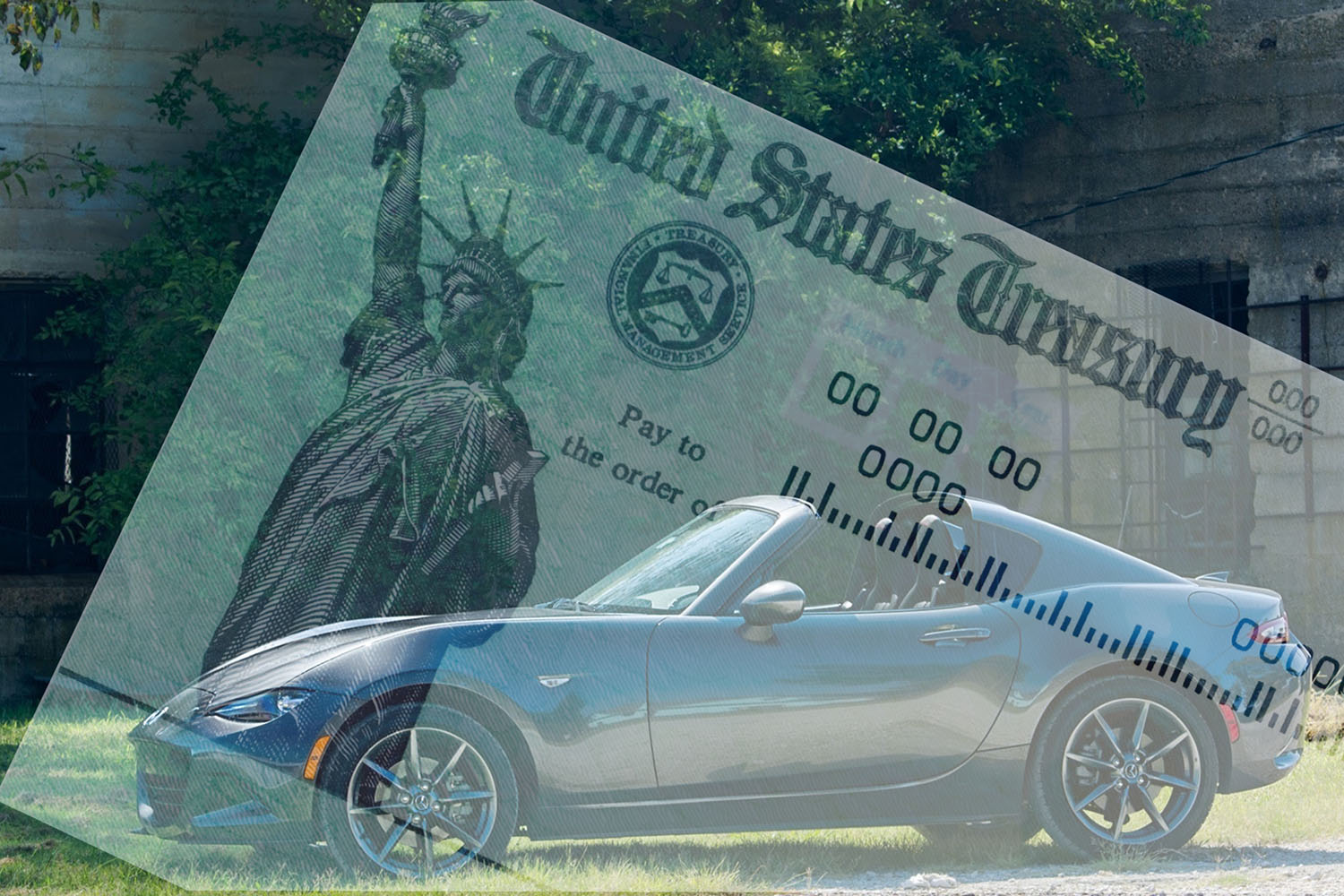Read This Before You Spend Your Tax Refund on a New or Used Car
If you're planning on spending your tax refund on a new set of wheels, check out these tips beforehand.
 Shutterstock / Capital One
Shutterstock / Capital One
Article QuickTakes:
Traditionally, spring is a great season to buy a car. The weather's nicer for test drives, and for many buyers, newfound money from an income tax return can help reduce the purchase price. But like many things in our lives, 2022 is a bit different.
The average used car price was 33.5 percent higher in February 2022 than a year earlier, and new car prices are up 13 percent, to an average of $46,404. And it’s just not the prices of cars, trucks, and SUVs that are putting a strain on people’s budgets. The average household is spending an extra $250 a month, with middle-class families paying even more, to meet daily expenses due to rising inflation in the economy.
On top of that, the average tax refund is likely to go down for most recipients from a record $2,800 in 2021. And you may have to wait longer for that refund. As of February 2022, there are over 24 million tax returns going as far back as 2019 that are still unprocessed.
If you plan on using your tax refund as a down payment, you’ll be competing against like-minded shoppers for a limited selection of cars with a steep price premium. Still, there are glimmers of sunshine if you are thinking of spending your tax return on a vehicle. The following tips can help you close the inflationary gaps and get a decent deal in a market with few deals to be had.
Consider Buying a Car from a “Dead Brand”
Tens of millions of used vehicles are still on the market from automotive brands that disappeared over the past 15 years, like General Motors’ Saturn or Ford’s Mercury. These “dead brand” used vehicles frequently sell for lower prices than cars from existing marques.
In today’s marketplace, a midsize crossover with all-wheel drive, such as a 2009 GMC Acadia or top-of-the-line Buick Enclave with over 100,000 miles, can retail for between $11,500 and $12,500, according to the Manheim Market Report, a database that tracks millions of purchases throughout the country. That same powertrain in the form of the 2009 Saturn Outlook with similar miles will likely cost you $4,000 to $5,000 less. The difference? Saturn is no more. But Buick and GMC survive.
For every popular SUV (such as the hot-selling Ford Escape or the Chevy Equinox), a lesser-known used Mercury Mariner or Suzuki XL-7 typically goes for less money because of less advertising dollars and brand awareness.
Reevaluate Your Vehicle Needs
Pickup trucks, crossovers, and SUVs go for a stiff price premium right now. However, there are plenty of minivans and cars that are unpopular but reliable. All of which offer solid value even in today’s market.
The Mazda 6 is one of the best examples of paying less while getting a far greater bang for your buck when you buy a car. According to the Manheim Market Report, an entry-level 2017 Mazda 6 Sport with 63,000 miles wholesales for more $4,000 less than a comparable SUV, such as the Toyota RAV4. The money a dealer saves on buying that car should translate into a lower price for you.
Model-Year Close-Outs Are a Great Time to Buy New Cars
There are times of the year when automakers will discount the old model to make room for the spiffy brand-new version. Most model-year changeovers typically take place in the fall, but the supply-chain disruptions wreaking havoc on the auto industry mean that new models come out year-round. For example, the 2022 Kia Sportage is available with a $750 rebate directly from Kia now that the 2023 version is slated to arrive this spring. If you find yourself admiring a vehicle you’ve never seen on the road before or reading reviews of an exciting new car, realize that means that there may be an outgoing model lingering on a dealer lot somewhere nearby.



